You’ve built a fantastic business, but your ideal customers can’t find you online?
Competition becomes more and more severe daily making you feel like you’re shouting into the void. Having a website and occasionally posting on social media isn’t enough anymore.
It’s digital marketing for small businesses that helps you attract attention and convert casual scrollers into loyal customers.
So, whether you’re new to the game or looking to refine your digital marketing strategy it’s important to clearly understand the benefits, methods, and effective tools that can work perfectly for small businesses like yours.
Why Is Digital Marketing Essential for Small Businesses?
Your direct customers are online every day, searching for products and services like yours. It’s as simple as that.
If you neglect developing a solid strategy, you’re missing out on massive opportunities to connect with them. But what’s so unique about digital marketing? Unlike traditional marketing which includes print ads, billboards, and TV commercials, digital marketing’s gameplay takes place entirely online. You put various channels, tactics, and tools into use to reach people right where they are.
You might also wonder how small business digital marketing sets itself apart from the strategies employed by big companies. It’s all about agility and personalization. While large corporations often focus on scaling their campaigns for maximum reach, small businesses can use digital marketing services to build personalized connections and nurture customer relationships directly.

In the words of marketing expert and author Seth Godin, “People do not buy goods and services. They buy relations, stories, and magic.” That said, digital marketing is the tool that will help you create meaningful, lasting connections with your customers.
It’s a targeted, more intimate environment where your unique brand voice resonates amid the noise. You have the flexibility to experiment with different platforms, and strategies, from email marketing to social media, and find what truly clicks with your audience and scales in correspondence with your growth.
Let’s now see how exactly digital marketing can help you amplify your business strengths.

Effective Digital Marketing Strategies for Local Companies
As a small business owner, you should know the importance of concentrating on your core strengths. Prioritize digital marketing efforts that align with your brand’s specific needs. Stop spreading yourself thin across every marketing channel.
What works for many may not be the way of reaching out to your target audience. So, here’s the best thing to do. Study each strategy below to see what will work exactly for your business and niche.
Local Search Priority and SEO
If you’ve ever searched for a bakery “near me” or a local service, you’ve already seen local search in action. The same logic works for web searches like:
- Urgent care clinic close to me
- Vegan cafes nearby
- Best accounting services in California
Local SEO is what helps your business show up in search results when people are looking for specific stuff in your area. In simpler words, by optimizing your online presence for local searches, you’re increasing your chances of connecting with people who are ready to make a purchase.
As a result, local SEO services not only drive foot traffic to your storefront but also help build a loyal customer base within your community.
Actionable Tips for Small Businesses
Use Local Keywords in Your Content: Local SEO is heavily based on local keywords that can boost your online visibility and bring targeted traffic.
Think about things your customers may search for while looking for products or services like yours.
Terms like “best plumber in LA” or “affordable legal services in Alicante” can become target or secondary keywords in your SEO efforts to improve your rankings.
Consider optimizing your website with similar keywords to help Google understand what you offer and where your business is located. Make sure to incorporate such phrases naturally into your titles, meta descriptions, and meta tags.
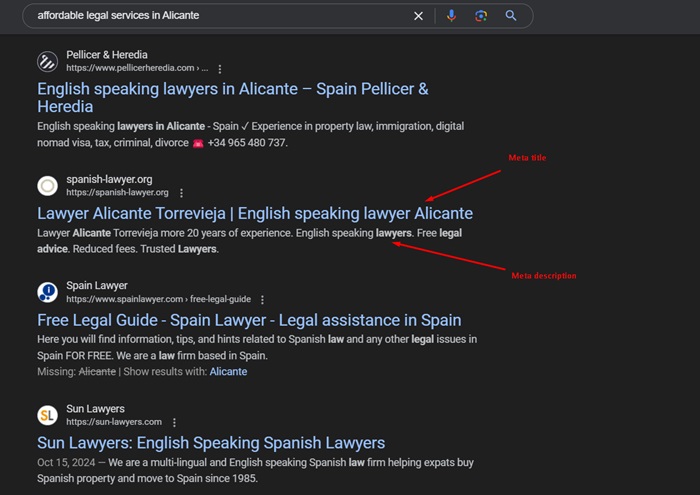
Optimize Your Website for Mobile Devices: Over 59% of global website traffic originates from mobile devices. Additionally, 57% of local search queries are made using a mobile device or tablet. Knowing this, how can you afford to ignore optimizing your website for mobile devices?
Having a user-friendly website is half the job. Consider having a responsive design that adjusts to any screen size with images loading quickly and buttons being easy to click on a touch screen. For instance, if you own a small pizza shop and have a mobile-friendly website that is also optimized for local searches, you can attract potential customers who are searching for “pizza near me” on their phones. This will increase the likelihood of placing an order via your website.
Leveraging Google Business Profile
If you haven’t already claimed your Google My Business profile, now’s the time!
It will help your business to appear on Google Maps and across local search results for people searching related stuff in your area.

You’ll need to provide details like:
- Your exact address
- Working hours
- Area photos
- Services you offer
Ensure everything about you on the web is accurate and up-to-date. Also, encourage your customers to leave reviews and ratings on your profile (preferably positive), as these can greatly impact your local search ranking.
Here are a couple of additional things to help you get started with the Google Business Profile.
Post Regular Updates and Offers
Don’t just open a profile, but also keep it active! This is a space where you can regularly post updates, offers, promotions, and even engage with your customers via videos and photos. Staying active here will help with engagement and provide potential customers with real reasons to choose your business. Plus, Google rewards active profiles that have better visibility.
Learn more about this from Google’s Help Center.
Use High-Quality Visuals
Our life today evolves around visuals. And that’s why people visiting your business profiles will appreciate it when they see high-quality and appealing footage. Google Business Profiles with photos tend to receive 42% more requests for directions via Google Maps and over 35% clicks compared to those that don’t have visual content. That said, while trying to grow your pizza shop, you can have pictures taken at different times with changing themes, from pizza making to a newly upgraded interior, or even a bustling dining space.
Voice Search Optimization
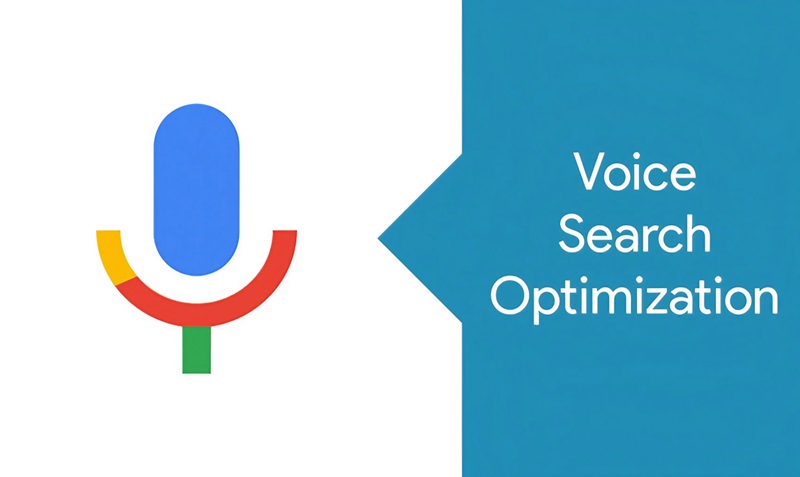
Voice search marketing refers to optimizing content to ensure businesses and services are discoverable in response to voice-activated queries.
Initially seen as a funny thing with garbled interpretations, voice search technology has turned into something massive and is expected to grow even more. Today, with an impressive 95% recognition accuracy in English, voice search is a mainstream, efficient tool for retrieving information for millions.
Just imagine, that over 58% have used voice search to find information about a local brand. Ignoring this tool may have already resulted in losing thousands of potential customers.
If you’re not practicing voice search SEO, it’s time to start. The higher your business shows on Google’s search results, the more likely it will be found by the right people.
There are various ways to optimize for voice search:
- Focus on long-tail keywords
- Make use of question phrases in your content
- Optimize your Google My Business listing
- Test content with the Google Natural Language API
- Use structured data markup to improve search results display
Content Marketing for Building Authority
Optimizing for SEO is important for your business to be discovered and chosen by potential customers. However, you cannot rely solely on it to build your brand’s reputation and authority in the industry.
Content marketing is the driving force behind building authority in any niche.
Sharing guides, creating landing pages, and sending out emails can help showcase your expertise. Diversify your content with videos, infographics, and other content types to cover topics from different angles.
Let’s see what you can do to build a solid brand authority with this small business digital marketing strategy.
Focus on Thought Leadership
Try positioning yourself as a thought leader in your industry. Instead of just reporting on what’s happening, you can share your unique perspective through discussions and in-depth analysis. This will add value to your audience and differentiate you from your competitors who may only scratch the surface of certain topics.
Repurpose Your Content
Publishing and forgetting about an article is the worst thing you can do. Content repurposing involves recycling, reusing, and adapting your content to fit different platforms and formats. This allows you to reach a wider audience, showcase your expertise in various ways, and save time when creating new content. For instance, ClassPass, a fitness subscription service, practices content repurposing by creating workout guides and transforming them into social media posts, YouTube tutorials, and email content.
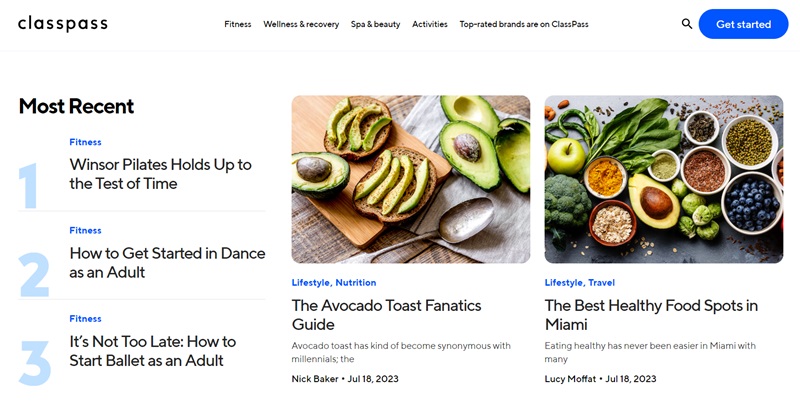
This helps them maintain engagement while getting the most out of their original material. The ultimate goal of content marketing is not just visibility but credibility. When people see you offering quality time and time again, you’ll naturally become their trusted resource. That’s when your brand authority grows.
Social Media Marketing for Engagement and Growth
Going viral is not the only way to succeed on social media. In fact, a large number of followers doesn’t automatically translate to high engagement or sales.
Instead of focusing on numbers, small business owners should prioritize building relationships and engaging with their audience. This can be done through various strategies such as:
- Consistent posting that provides value. Share helpful tips or behind-the-scenes content that resonates with your followers. Consistency will help you keep your brand visible, while the value will grow the trust and encourage engagement.
- Give space to user-generated content (UGC). People love seeing what others have to say about certain favorite brands and products. UGC is often seen as more authentic and trustworthy than branded content because people get a sense of community through it.
- Run paid ads for targeted growth. Local SEO can be useful for small businesses but when combined with the right targeting strategy and social media ads, it can be even more effective. You can target people based on their interests, location, and more to reach a highly specific audience.
This last point is worth digging a bit deeper.
Paid Advertising for Immediate Results
Online presence for small businesses is reached through continuous efforts. It takes time to build a solid following and brand reputation.
But what if you need results sooner rather than later?
That’s how paid advertising works. Organic strategies take time to bear fruit, so you can use paid ads to reach the right audience at once and start driving targeted traffic.
Incorporating paid ads into your digital marketing strategy requires certain expertise and knowledge of your end objectives. Otherwise, you are just risking your budget and not getting anything out of it.
Now, continue taking notes, as we will further share insights and tips on how to make the most out of your paid advertising efforts.
Choose the Right Advertising Platform
Are you targeting local customers? Then Google Ads or Facebook Ads might be your best bet. Both platforms allow businesses to create ads based on location, interests, and behavior.
For example, if you own a local restaurant, you can use Google Ads to target people searching for restaurants in your area or run Facebook Ads offering a discount to people within a few miles of your location.
The Sill, a small New York-based plant company, used paid advertising on social media to build brand recognition and drive sales. During one of their holiday campaigns, The Sill took a fresh approach and redefined the conventional holiday aesthetic. Instead of adhering to typical festive elements like traditional Christmas music and clichéd decorations, they opted for innovative methods to convey the holiday spirit.
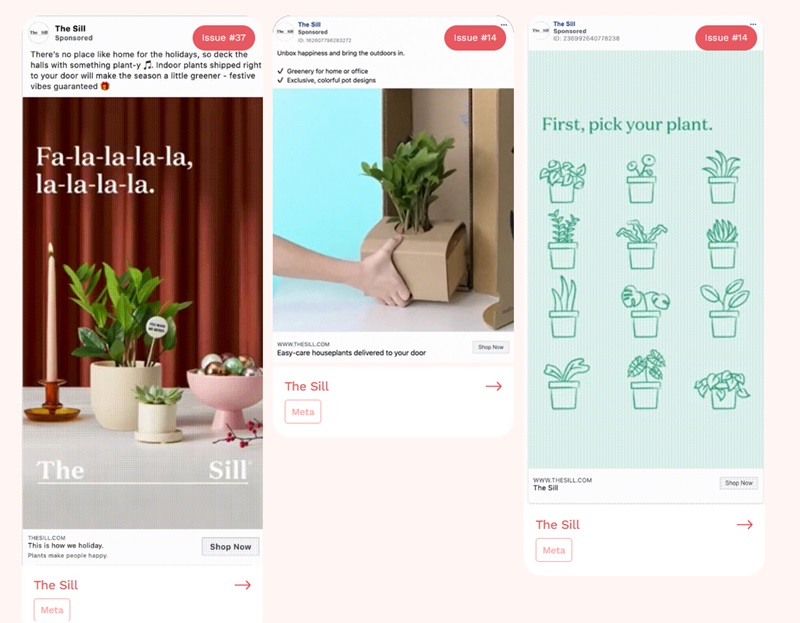
This helped them boost their sales and foster a more authentic and modern experience during the festive season. Such a unique approach has grown their reputation and set The Sill as a trailblazer in tasteful, yet unconventional celebrations.
Test, Track, and Optimize
Don’t settle for one ad and expect it to work forever. Digital marketing for small businesses is all about constant testing, tracking, and optimizing.
This means monitoring the performance of your ads regularly and testing different ad formats, headlines, and images to find what’s best for your customers.
For instance, you can run A/B tests with different designs to find those that generate the most clicks. Analyze the received data and allocate your budget to the most effective ones.
Email Marketing
Last but not least among the digital marketing strategies for small businesses is sending out email campaigns. Email marketing has been proven to have a high return on investment (ROI), making it an essential tool for any business looking to grow their customer base and increase sales.
A great example of a small business implementing email marketing is Brooklinen, a bedding company. With a focus on beautiful and lightly designed emails, they send out engaging content and exclusive offers to their potential buyers. This helps them build long-term customer relationships and drive sales without being too pushy or aggressive.
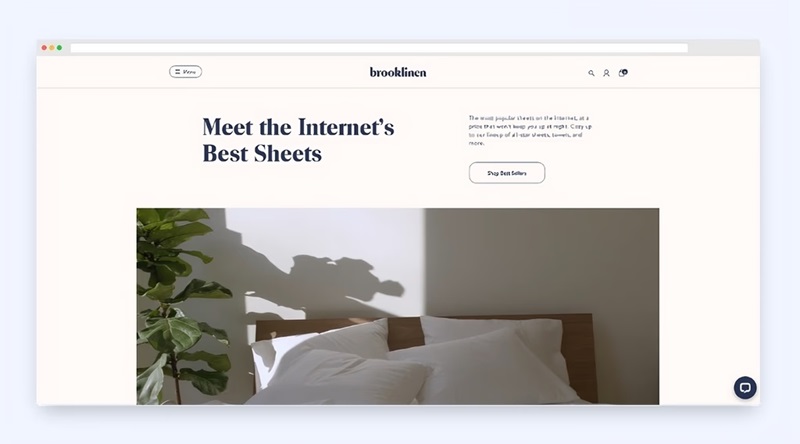
Tools for Small Business Digital Marketing
You already know enough about digital marketing and promoting your business online. But let’s take it a step further to explore some handy tools and small business marketing tips that will position you for success.
Social Media Management Tools
- Hootsuite: Scheduling and managing all your social media posts from a single platform.
- Buffer: Planning, publishing social media content, and also tracking key performance metrics.
- Sprout Social: Ideal for managing social media interactions and analyzing audience engagement.
Email Marketing Tools
- Brevo (ex Sendinblue): All-in-one email marketing tool to help you design professional emails.
- Mailchimp: Ideal for automating email campaigns, segmenting your audience, and tracking email performance with easy-to-use templates.
- Constant Contact: A beginner-friendly tool for email campaigns and contact management.
SEO and Analytics Tools
- Ahrefs: Advanced SEO tool to help you analyze backlinks, track keywords, and monitor your competitors’ SEO performance.
- Semrush: An all-in-one tool ideal for discovering marketing insights, improving online visibility, and monitoring the current markets.
- Google Analytics: Tracking website traffic, user behavior, and conversion rates to improve your SEO and marketing strategies.
Customer Relationship Management (CRM) Tools
- HubSpot CRM: Easy-to-use CRM to help you track and manage customer interactions and streamline your sales processes.
- Zoho CRM: An affordable tool that allows small businesses to manage customer relationships, sales, and marketing activities.
- Salesforce: A more advanced option to help you build customer relationships, automate tasks, and create reports for better insights.
Benefits of Digital Marketing for Emerging Businesses
Digital marketing offers small businesses effective tools to grow, reach more customers, and compete with larger companies. Apart from these, there are things that make digital marketing especially beneficial for businesses like yours. Let’s look at some of those:
Increased Brand Visibility and Online Presence
While using social media, paid ads, and SEO your business gets a unique chance to show up where your customers are searching. This will help you gain more exposure and drive traffic to your website.
Even a small business can build a solid online presence and expand its customer base by using digital channels.
Improved Customer Interaction and Relationship Management
Through a strategically built digital marketing strategy, you get a chance to connect with your customers in real time. Social media, emails, and personalized content allow businesses to engage with their audience, provide answers to their pain points, and build stronger relationships. This leads to increased customer loyalty and long-term success for your business.
Data-Driven Marketing for Informed Decisions
The ability to track and measure your efforts in real time is among the most important benefits of online marketing for small businesses. Analytics tools help you gather data on your campaigns, website traffic, and customer behavior, thus resulting in more informed decisions about your strategy.
In turn, this will lead to budget optimization, targeting the right audience, and improving your performance.
Competing with Larger Brands
With the right strategy in place, your business gets a chance to level up and compete with much larger brands.
This strategy is best proven by the real-life example of Warby Parker, which entered the eyewear market previously dominated by well-established brands and positioned itself as a reliable and affordable option through e-commerce marketing and direct-to-consumer strategies.

Warby Parker effectively used digital marketing to reach a younger, tech-savvy audience by offering stylish, affordable glasses paired with a unique home try-on program. Their focus on brand storytelling, social media engagement, and customer-centric content allowed them to gain visibility and create lasting customer loyalty. By embracing these digital strategies, Warby Parker successfully competed with larger brands that relied heavily on traditional retail methods, showcasing the power and effectiveness of smart digital marketing practices for smaller businesses.
Which Types of Businesses Benefit Most from Digital Marketing?
Whether your business requires a digital marketing strategy greatly depends on your specific goals and the outcomes you aim to achieve from such a strategy.
It can be especially true for local service providers such as plumbers and electricians who can benefit from local SEO strategies to attract nearby customers. Retail shops and eCommerce stores can integrate social media and email marketing to drive sales and engage with their customers. Health and wellness businesses, including gyms and spas, can utilize digital marketing to reach clients seeking fitness or relaxation solutions.
And so on.
The Bottom Line
Building a digital marketing strategy in-house may seem like a viable option, yet it often comes with challenges, especially for small businesses with limited time and resources. Moreover, to develop a small business digital marketing strategy you will need to invest in multiple tools and subscriptions.
That’s a crucial factor that makes outsourcing digital marketing tasks a more efficient and cost-effective solution. Partnering with a professional agency like Andava Digital can make all the difference.

From SEO to social media management and paid advertising, small businesses gain access to a team of experts with years of experience in digital marketing. Instead of spending valuable time learning the complexities of digital marketing, you can focus on running your business while the agency handles everything from strategy to execution.
In addition, Andava Digital provides an external perspective on your business. The team can offer insights and strategies that you may not have considered, helping you to see opportunities for growth and improvement.
Remember, having a well-thought-out digital marketing strategy and partnering with the right experts in the industry is the secret to maximizing growth and achieving lasting results.